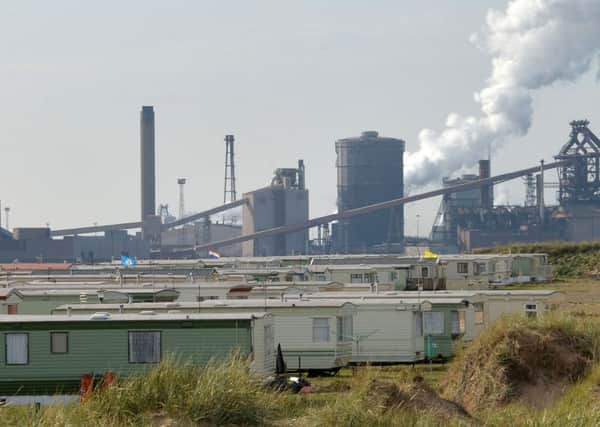Iain Wright: How we can save British steel


GIVEN the steel industry’s importance and the crisis in recent months, with one in six jobs lost since the autumn, the Business, Innovation and Skills Committee made this issue the topic of our first report of the Parliament.
We found that the Government were not sufficiently alert to the warning bells being sounded by the UK steel industry. Although the Government had identified the sector as vital, Whitehall did not have effective warning systems in place.
Advertisement
Hide AdAdvertisement
Hide AdThe loss of job, skills and capacity is nothing short of a national tragedy. That has spanned more than 40 years, but on their watch, this Government should have been much more proactive in considering the retention of the existing steel capability and employment levels, rather than redeploying hard-working and skilled people to alternative jobs that are often less productive and lower earning, and losing forever these key industrial assets.
The Select Committee also found that UK governments needed to do more at an EU level to prevent the dumping of Chinese steel – an issue that is of central importance.
At the steel summit in October, industry made five reasonable policy requests on matters such as energy costs, business rates, procurement, anti-dumping measures and the industrial emissions directive.
In the letter to me that accompanied the Government’s response to the Select Committee’s report, the Minister for Small Business, Industry and Enterprise, Anna Soubry, stated: “We have delivered on four of the five asks of UK steel and on business rates we await the conclusions of the Chancellor’s review”.
Advertisement
Hide AdAdvertisement
Hide AdThe Business Secretary, Sajid Javid, has said virtually the same thing – the Government said that it has been “unceasing in its efforts to deliver” on those five asks, and pledged to “continue to do all it can in the coming weeks and months to ensure a healthy and sustainable future for UK steel”.
Those are powerful words and phrases, yet I regret that they are untrue, and it is wrong to say that the Government have delivered on four out of five asks.
For example, on procurement it is true and very welcome that the Government have changed the guidelines to allow for more local content. However no orders have yet been received in steel plants on the back of that change to the guidelines, and they also fail to include so-called publicly enabled procurement projects.
That means that Hinkley Point, one of the largest construction projects that this country has ever seen, which requires more than 200,000 tonnes of steel, is not subject to the guidelines. Nor is the massive rolling stock programme.
Advertisement
Hide AdAdvertisement
Hide AdThe biggest issue regarding not only the viability of the UK steel industry but the survival of the entire global steel industry is that of cheap Chinese steel being unleashed on the rest of the world. The Committee fully accept that even if the Government were able to deliver immediately and in full on all the other asks, the future of the UK steel industry would remain in doubt unless effective action at an international level to withstand the onslaught of cheap Chinese steel could be taken.
China has far too much supply in the face of sharply shrinking domestic demand. Total Chinese steel production is 1.17 billion tonnes, which is more than double that of the four next largest producers – Japan, India, the US and Russia – combined. Chinese surplus capacity is bigger than the entire steel production of the United States, Germany and Japan combined.
Why would China want to reduce steel output? The closure of local steel mills will throw something like 400,000 steelmakers out of work, putting at risk social order and the ability of the Chinese party apparatus to control matters. It is far easier to keep operations going now. Chinese banks are urging mills to keep going so that they do not have to make provision for bad loans.
It is naive of policymakers in the West to believe that the Chinese will allow it to happen willingly.
Advertisement
Hide AdAdvertisement
Hide AdIt is therefore imperative that policymakers in the West undertake a concerted and co-ordinated effort to withstand this illegal Chinese dumping. Nobody would want a protectionist arms race to escalate throughout the economy, but Ministers must surely realise that the British steel industry – alongside many other European steel producers – faces an existential threat that is based on a grossly distorted and failing market.
This is not about imposing additional duties or tariffs elsewhere on British manufacturing; it is a request, a plea, for a coordinated response. The UK steel industry is on its knees. This proud sector, which should be powering the future of British manufacturing, is pleading with the Government to help and to make sure that we have a sustainable future for the steel industry in this country.
Iain Wright is the Labour MP for Hartlepool who spoke in a Commons debate on the steel industry. He is chairman of the Business, Innovation and Skills Select Committee.